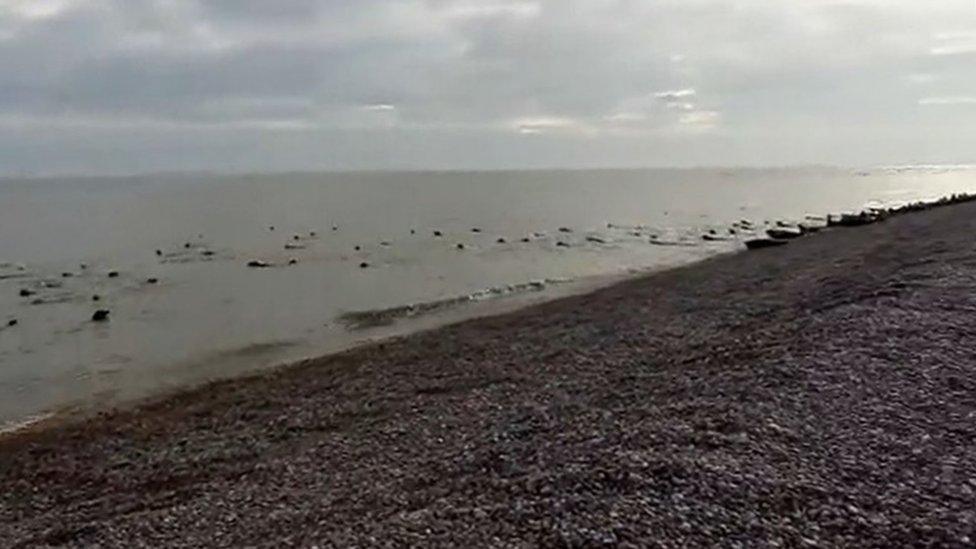Bird flu means charity cuts back on seal pup rescues
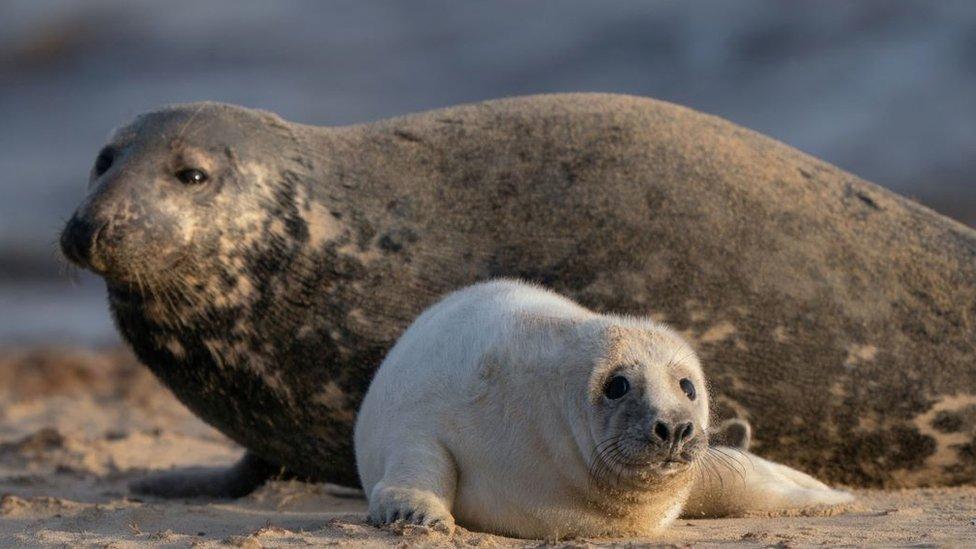
Norfolk has large colonies of breeding seals at Horsey (pictured), Blakeney Point and other beaches
At a glance
A rescue charity says it is going to have to cut back on the number of seal pups it can save
Marine & Wildlife Rescue, based in Great Yarmouth, picks up about 100 seals a year
It said avian flu and quarantine restrictions meant rescue and treatment centres it used were mostly full of birds
It hoped the public would understand that it had to sometimes put seal pups down
- Published
An animal rescue charity has said quarantine issues caused by avian flu meant it would have to cut back on calls to save injured seal pups.
Marine & Wildlife Rescue, based in Great Yarmouth, said it had seen an increase in calls about animals in distress and sometimes it had to make a decision to put them down.
The organisation said it had rescued up to 100 seals over 12 months, but ongoing avian flu cases had increased demand on space at rescue centres.
Dan Goldsmith, the charity's chairman, believed its "best focus is with the rescue of general wildlife", but it would continue with the rescue of adult and entangled seals, which was its speciality.
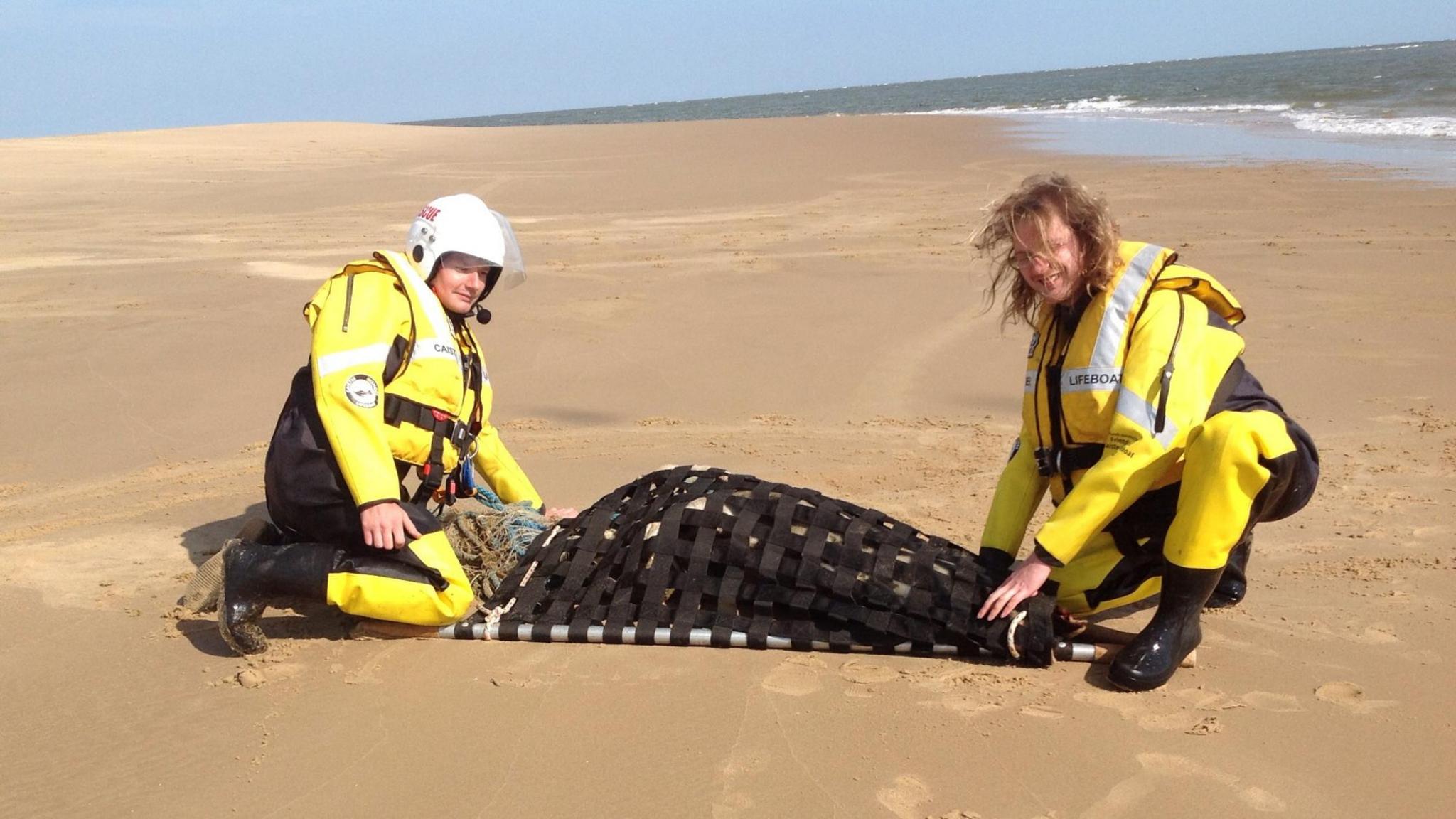
Injured seals are picked up by a number of organisations at places including the Scroby Sands sandbank off the Norfolk coast
Mr Goldsmith said it could get up to six calls a day about seals that needed rescuing.
If needed, it would usually take them to the RSPCA's wildlife hospital at East Winch near King's Lynn, where they have a specialist seal rehabilitation facility.
"The numbers are so huge now the phone just doesn't stop," he said.
"Pups are in need so often, and there's a lot more adults as well; the breeding colonies have done very well in Norfolk and that's helped compound this situation."
There are currently 26 seals in the RSPCA hospital's care.
More on North Sea seal colonies
Ban dogs from beach to protect seals, MP says
- Published29 June 2023
Council told seal plastic ring ban not enforceable
- Published23 June 2023
Record number of baby seals seen on county beaches
- Published16 January 2023
Mr Goldsmith said that due to the rise in avian flu cases there was "only a finite space [at rescue centres] for the seals".
"We tragically do have to euthanise a good number of them when there's shortage of space or they're particularly unwell and are going to take a lot longer to recover - we have to make that decision."
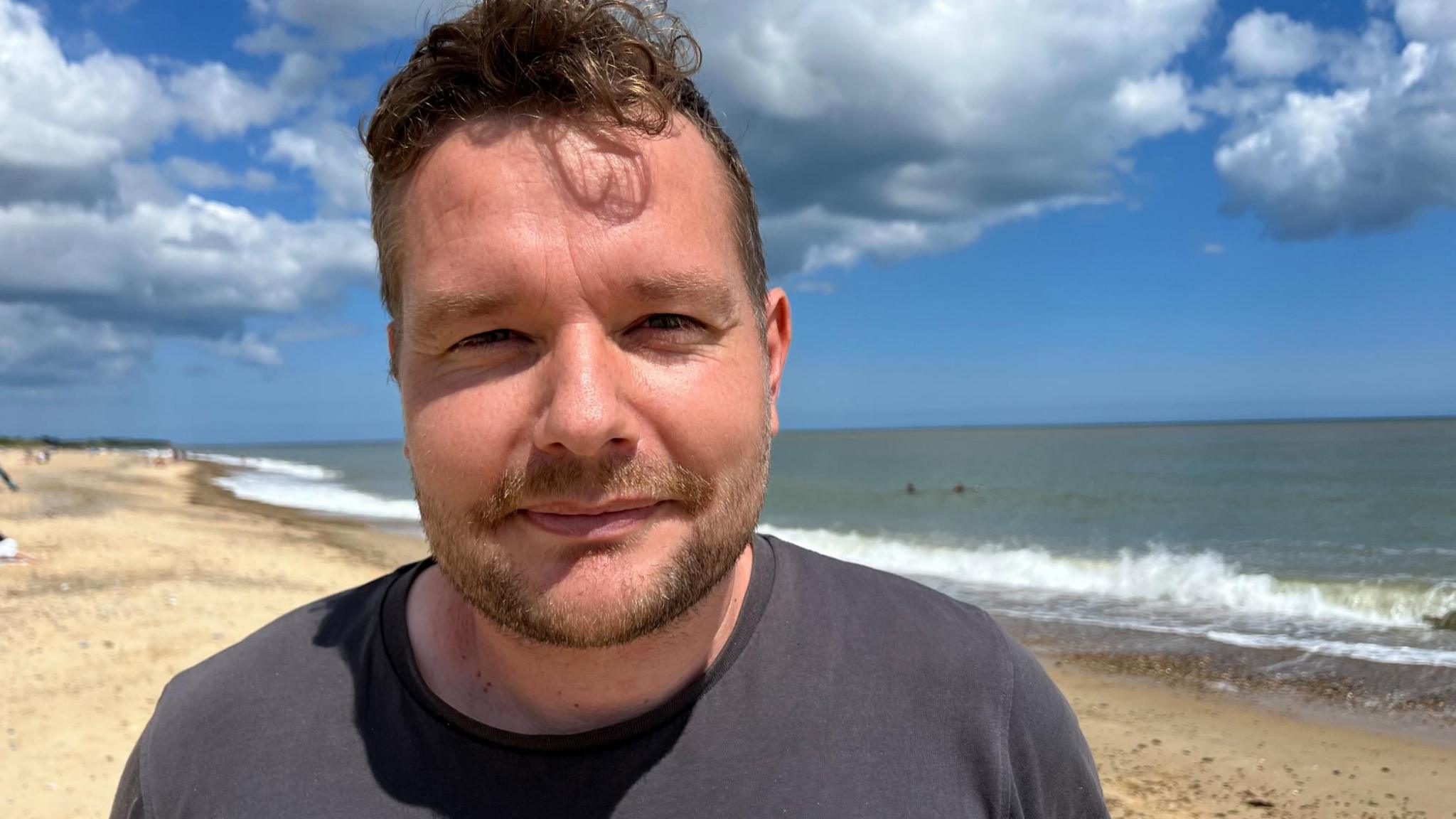
Daniel Goldsmith said rising numbers of injured seal pups and birds was "really difficult to manage and I hope the public understands"
Mr Goldsmith said the charity, which operates off the Norfolk and north Suffolk coast, did recuperate some birds itself - mostly waterfowl.
He said it was having to quarantine birds owing to risks caused by avian flu.
"There's complications as well with avian flu which is an ongoing situation which we have to adapt to," he added.
"Biosecurity is a huge thing and the wildlife centres dictate what we can take in and under what circumstance.
"So, if we've been quarantining ducklings, for example, we have to do that for two weeks.
"We then can't transport those birds with other wild birds at the same time, so it really complicates the whole process.
"It’s really difficult to manage and I hope the public understands."
"There are now a number of established seal rescue groups here in Norfolk to help with the seals exclusively."
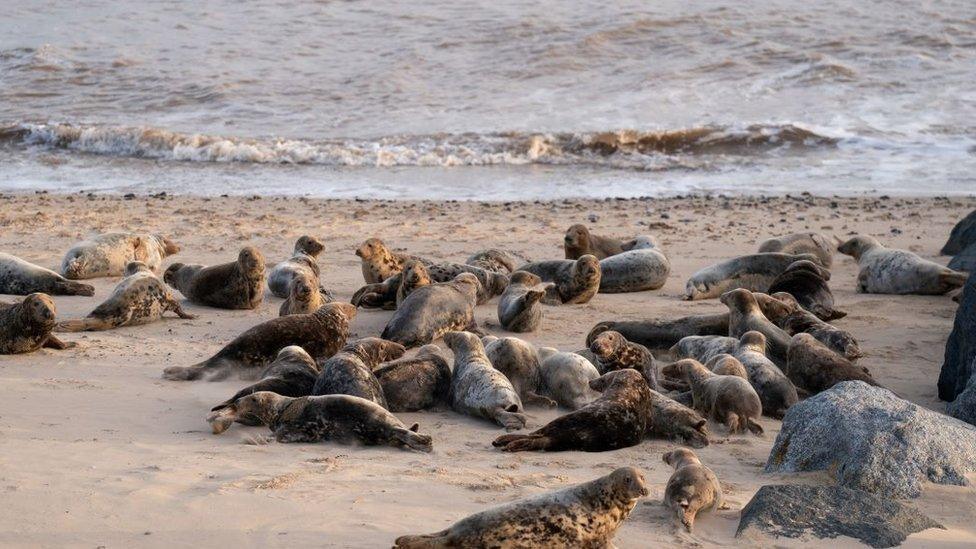
Thousands of seal pups are born along the Norfolk coast each winter
The RSPCA at East Winch said it had about 600 animals in its care at the moment - close to the limit staff could cope with.
Aside from the 26 dozen seals, about half were birds, and there was a high number of hedgehogs.
Follow East of England news on Facebook, external, Instagram, external and Twitter, external. Got a story? Email eastofenglandnews@bbc.co.uk, external or WhatsApp us on 0800 169 1830
Related topics
- Published17 January 2023
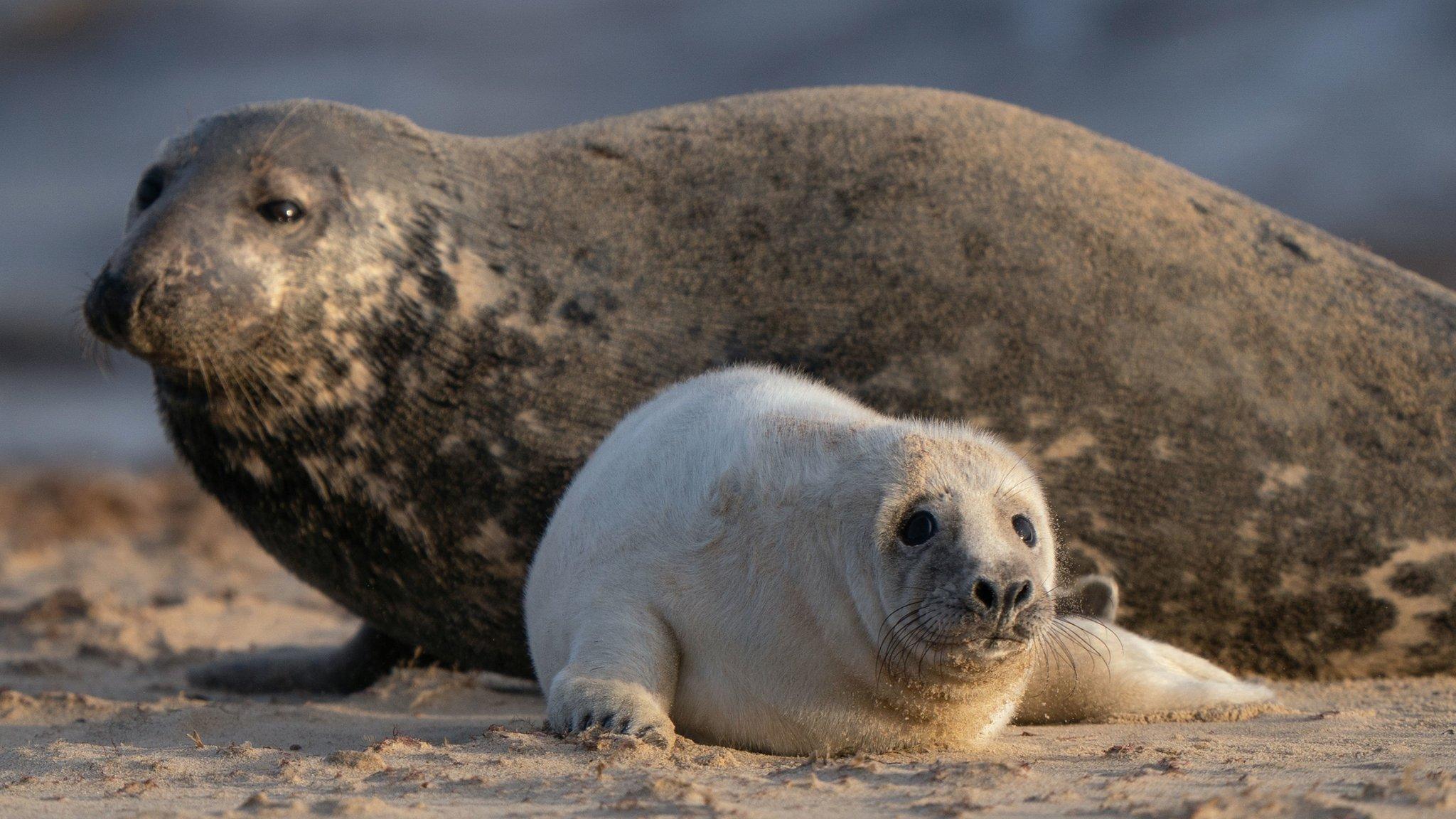
- Published12 November 2021
